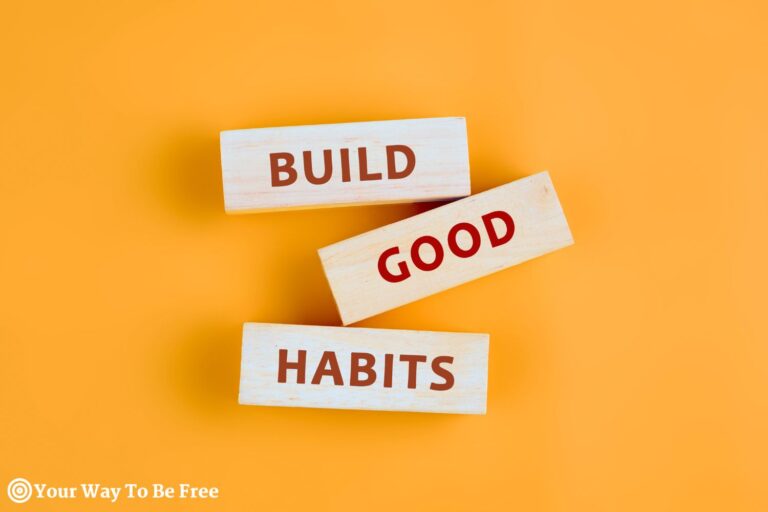Do you sometimes feel like you’re caught in a cycle of negative thoughts or find yourself struggling to maintain healthy relationships with the people around you? If so, you might be engaging in certain toxic behaviors that can not only hinder your personal growth but also damage your connections with others.
You’re not alone in this struggle – many people unconsciously fall into patterns of behavior that can be detrimental to their well-being and the well-being of those they care about.
In this blog post, we’ll talk about seven common toxic behaviors that can have a negative impact on both your personal development and relationships. By understanding these behaviors and learning how to avoid them, you’ll be better equipped to create a more positive mindset and cultivate healthier, more fulfilling connections with others.
We’ll also provide practical tips and strategies to help you break free from these unhelpful patterns and embark on a journey towards becoming the best version of yourself.
So, let’s dive in and explore how we can transform our lives and relationships by shedding these toxic behaviors and embracing a more uplifting and supportive approach.
Attention Seeking
Constantly seeking attention can be exhausting for both you and those around you. It often stems from a deep-seated need for validation and can lead to superficial relationships. To combat this behavior:
- Focus on building genuine connections with others by engaging in meaningful conversations and showing genuine interest in their lives.
- Practice empathy and active listening skills to help deepen your relationships and create a more supportive social circle.
Being Overly Competitive
While a healthy sense of competition can drive personal growth and motivation, taking it to the extreme can lead to jealousy, resentment, and unhealthy comparisons. To maintain a healthy balance:
- Recognize the value of cooperation and collaboration in achieving shared goals.
- Celebrate the successes of others, recognizing that their achievements don’t diminish your own.
- Develop a mindset of abundance, believing that there’s enough success to go around for everyone.
Playing The Victim
Blaming others or circumstances for your problems can be tempting, but it ultimately leads to a sense of powerlessness and stagnation. To break free from the victim mentality:
- Take responsibility for your actions, acknowledging that you have the power to shape your life and circumstances.
- Adopt a problem-solving mindset, focusing on finding solutions and learning from your experiences.
Seeking The Validation Of Others
Constantly seeking external validation can be a never-ending cycle that prevents you from developing genuine self-confidence. To build a strong sense of self-worth:
- Reflect on your values and priorities, ensuring that your actions align with what truly matters to you.
- Acknowledge and celebrate your personal achievements, giving yourself the credit you deserve.
- Surround yourself with supportive and positive people who encourage your growth and development.
Passing Judgment On Others
Making negative judgments about others can create a toxic atmosphere and damage relationships. To cultivate empathy and understanding:
- Put yourself in other people’s shoes, considering their perspectives and experiences.
- Focus on the positive aspects of others and their actions, offering encouragement and support instead of criticism.
- Remember that nobody is perfect, and everyone is on their own journey of self-improvement.
Holding A Grudge
Holding onto anger and resentment only harms yourself and your relationships. To practice forgiveness and emotional healing:
- Understand that forgiveness is a choice, and it benefits you as much as it does the person you’re forgiving.
- Reflect on the lessons you’ve learned from past hurts and use them as opportunities for growth.
- Establish healthy boundaries to protect yourself from being hurt in the same way again.
Comparing Yourself To Others
Constantly comparing yourself to others can lead to insecurity, unhappiness, and a distorted sense of self-worth. To overcome this toxic behavior:
- Recognize that everyone has their own unique path, strengths, and challenges.
- Focus on your personal growth and progress, celebrating your achievements and setting realistic goals for improvement.
- Practice gratitude for the qualities and experiences that make you unique.
Conclusion
Recognizing and avoiding toxic behaviors is crucial in building healthier relationships and leading a happier, more fulfilling life. Developing self-awareness, cultivating compassion, and fostering positivity are key components in this journey towards personal growth and emotional well-being.
As we strive to eliminate these negative patterns from our lives, we not only improve our own mental and emotional health but also create a nurturing and supportive environment for those around us.
Let’s remember that change is a process, and it takes time, effort, and patience to transform our behaviors and mindset.
As we embark on this journey together, let’s support and uplift one another, celebrating our victories and learning from our challenges. By doing so, we can create a ripple effect of positive change, inspiring others to join us in becoming the best versions of ourselves.







